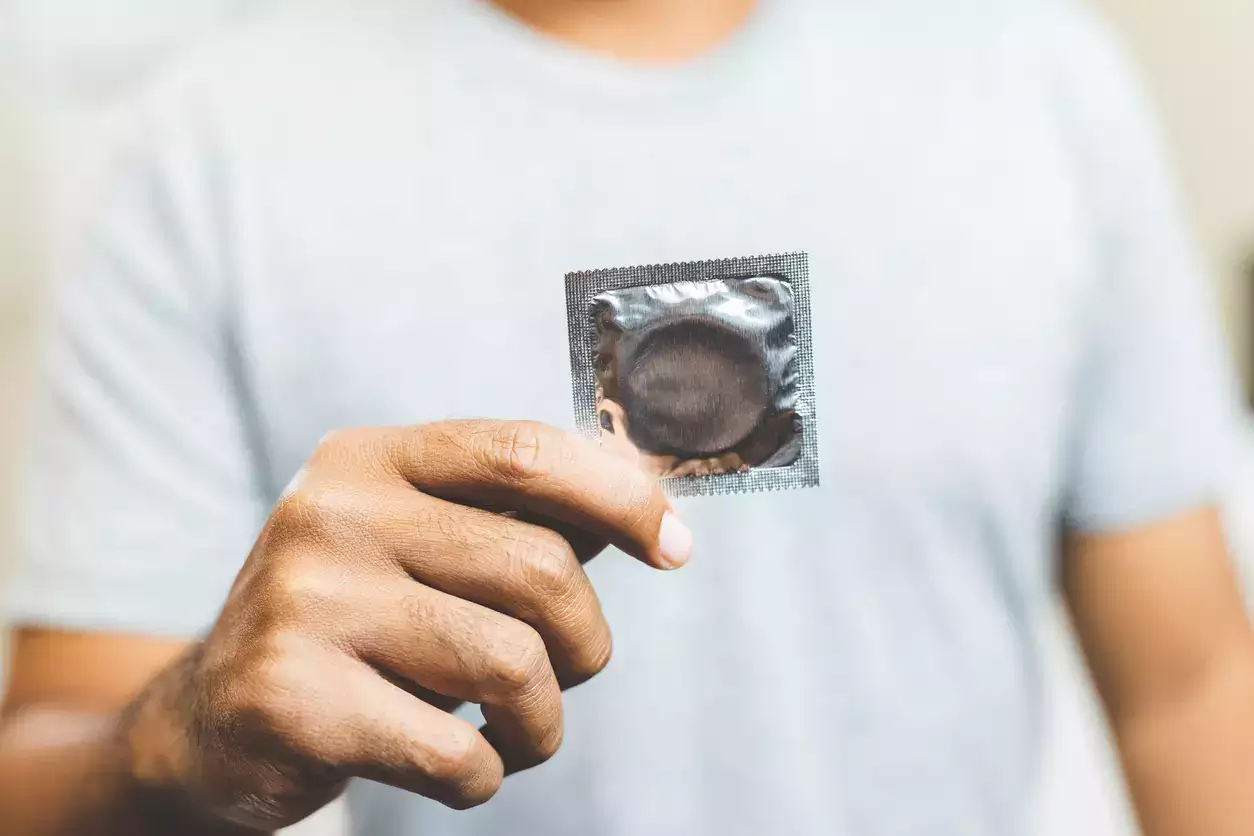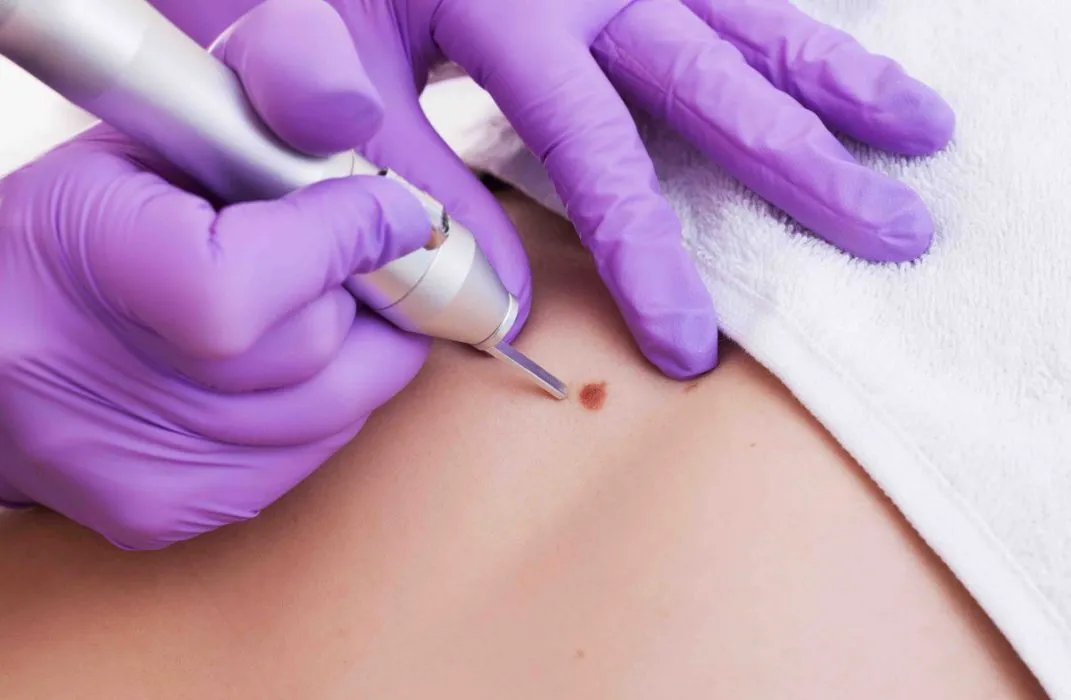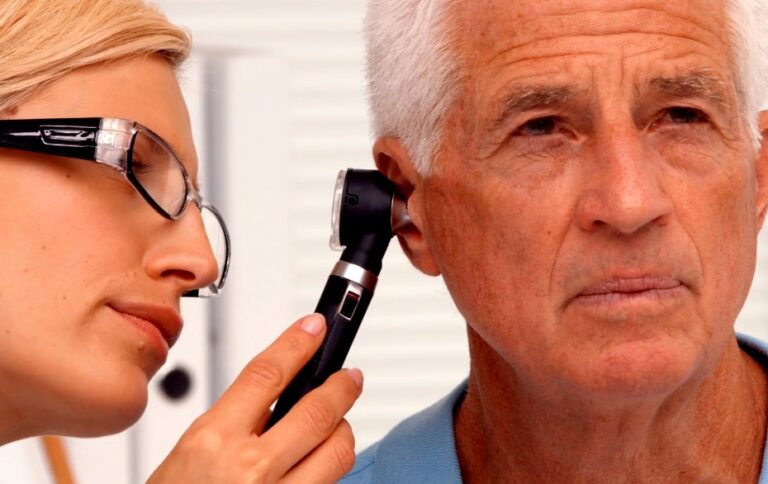Perianal Warts, often referred to as Peri-Anal Warts or by their scientific name, Condyloma Acuminata, are unique growths that manifest in and around the anus. At first glance, their flesh-colored appearance might remind you of the intricate patterns seen in cauliflower. But these aren’t just any ordinary growths; they’re the handiwork of the notorious HPV, the Human Papilloma Virus.
This crafty virus has a way of leaving its mark on the human body, and in this case, it chooses a rather discreet yet sensitive area. While their presence might be unsettling, understanding their origin and nature is the first step towards addressing and managing them. Remember, knowledge is power, especially when it comes to our own bodies.
How do I know I have it?
Frequently, people only find out they have Perianal Warts if it starts to bleed especially after wiping with toilet paper.
Or if their partner notices it and informs them.
You will be able to feel the growths with your fingers or see them with a mirror.
Perianal Warts do not cause any pain or itch.
How can I catch it?
Perianal Warts is caused by HPV. You can catch HPV by having unprotected anal sex with a partner who is infected with HPV.
HPV often causes no symptoms so you can catch HPV from your partner even if he appears completely well.
If I have Perianal Warts can I pass it to my partner?
Yes. If you have Perianal Warts, you can pass it on to your partner by having unprotected anal sex.
If your partner develops penile warts after having anal sex with you, you should have yourself checked for Perianal Warts.
How do I check for Perianal Warts?

You will be able to see flesh colored, cauliflower like growths around the anus. However, other things such as skin tags can look like Perianal Warts to the untrained eye.
See our Doctors. We will be able to determine if you truly have Perianal Warts. We might need to take a sample of the growth and send it to the lab for confirmation.
How is Perianal Warts treated?
There are many treatments available for Perianal Warts.
Aldara Cream (Imiquinod) has been found to be effective against Perianal Warts. The cream is applied onto the warts 3 to 4 times a week and left for 8 hours. It usually takes more than 6 weeks of application to fully eradicate the Perinal Warts. If too much cream is applied it can cause redness and even blistering of the surrounding skin.
We can freeze the Perinal Warts off with a special device. You might need more than 1 session of freezing to fully eradicate the Perianal Warts.
We can laser the Perianal Warts off. Most times a single session of laser treatment is enough to fully eradicate the Perianal Warts.
How can I protect myself from Perianal Warts?

Always use a condom when having anal sex. That said, condoms only provide 30% protection against HPV infection.
There are vaccines available for both Men and Women that can protect you against HPV that causes Perianal Warts. Speak to our Doctors for more details.
Are there any other diseases associated with Perianal Warts?
Yes. Perianal Warts are caused by HPV. Certain strains of HPV can cause cancer of the anus.
When treating your Perianal Warts please also speak to our Doctors about checking for HPV and anal cancer.
Are there other STDs associated with Perianal Warts?
Yes. Perianal Warts can be associated with Rectal Gonorrhea.
Perianal Warts can also be associated with HIV, Syphilis and Hepatitis B.
FAQ
1. Can I get Perianal Warts even if I’ve never had anal sex?
Yes, while anal sex is a common way to transmit the HPV virus responsible for Perianal Warts, other forms of close skin-to-skin contact can also spread the virus.
2. Are Perianal Warts the same as genital warts?
While both are caused by the HPV virus, they manifest in different areas. Genital warts appear on the genitals, while Perianal Warts appear around the anus.
3. Can they be prevented?
While condoms can offer some protection, they aren’t foolproof. The best prevention is the HPV vaccine, which protects against the strains of HPV most commonly associated with warts and cancers.
4. If I’ve had Perianal Warts once, can I get them again?
Yes, even after successful treatment, it’s possible to get a new HPV infection and develop Perianal Warts again.
5. Are they contagious even if they aren’t visible?
Yes, HPV can be transmitted even if warts aren’t visible. It’s always important to practice safe sex and inform partners of your HPV status.
6. Can Perianal Warts lead to complications if left untreated?
While they might not cause pain or itching, untreated Perianal Warts can grow and multiply. In rare cases, they can lead to cancer.
Final Words
Perianal Warts, while unsettling, are a manageable condition. Knowledge, awareness, and early detection are crucial. If you suspect you have Perianal Warts or are at risk, it’s essential to consult with a healthcare professional. They can provide guidance on treatment options and preventive measures. Remember, your health is paramount, and taking proactive steps can ensure you lead a healthy, fulfilling life.













